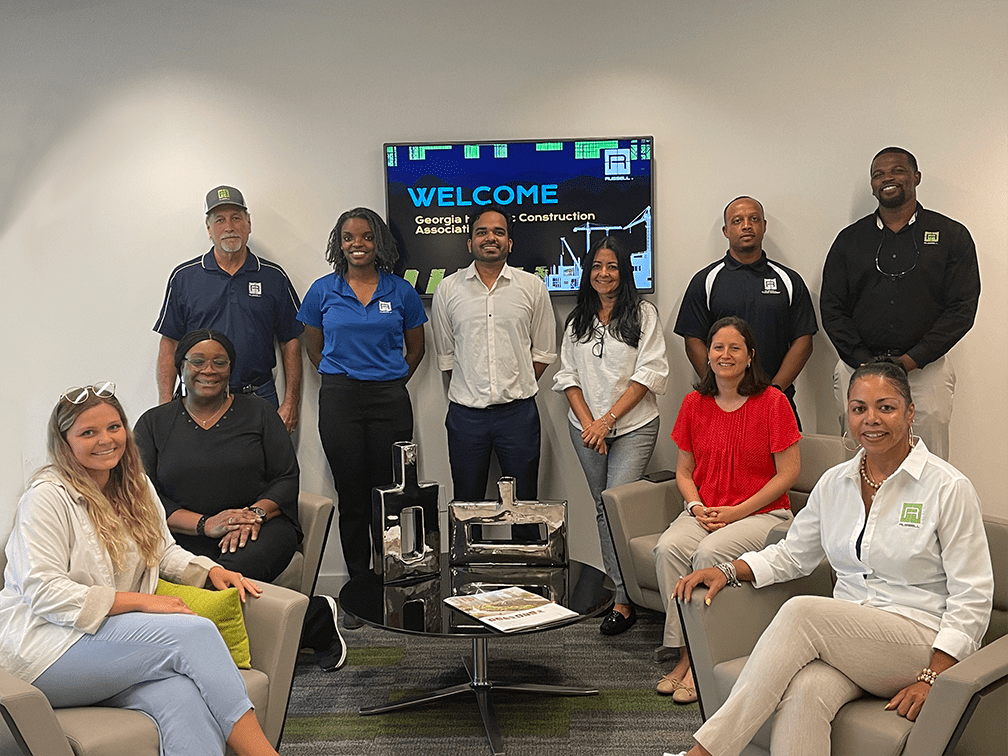
Jul 19 Why Proactively Nurturing a Diverse, Equitable and Inclusive Workplace is Critical to Growth and Survival
Diversity has been pivotal in the growth of H. J. Russell & Company (Russell). Differences in our backgrounds and experiences offer fresh perspectives and ideas—all promoting creativity among our team and helping us develop solutions for our clients’ challenges.
Before we highlight some of the advantages that businesses—particularly in construction—can have in proactively nurturing a diverse environment, we must first highlight the difference between diversity, equity, and inclusion (DEI). According to Built In:
Diversity refers to the presence of differences within a given setting; in the workplace, that may mean differences in race, ethnicity, gender, gender identity, sexual orientation, age and socioeconomic background. Equity is the act of ensuring that processes and programs are impartial, fair and provide equal possible outcomes for every individual. Inclusion is the practice of making people feel a sense of belonging at work.
With this in mind, through the years at Russell, one of the ways we have been able to enhance our work environment—on and off the jobsite—is by leaning into DEI practices and strategies at every level and intersection of our company. We have experienced the following benefits in doing so:
- Improved Decision Making: A diverse workforce brings people together from various backgrounds, experiences, and perspectives. This diversity of thought leads to better decision-making processes and more innovative solutions. Different viewpoints and problem-solving approaches can enhance the overall efficiency and effectiveness of construction projects.
- Enhanced Creativity and Innovation: Inclusion fosters an environment where employees feel valued and comfortable expressing their ideas. When employees are encouraged to contribute their unique insights, creativity and innovation flourish—in addition to employees’ desire to participate more. This can lead to the development of new construction methods, technologies, and design solutions.
- Attracting and Retaining Talent: Embracing diversity and promoting equity and inclusion can make the construction industry more appealing to a wider range of job seekers. Companies that prioritize DEI are more likely to attract top talent from diverse backgrounds. According to a LinkedIn study, 76% of employees and job seekers said diversity was important when considering job offers. Additionally, an inclusive workplace culture increases employee satisfaction, reducing turnover and increasing employee retention. “In light of the decision against affirmative action, we are even more intentional about advancing opportunities for underrepresented groups who have, for far too long, been excluded from the ‘winner’s circle,’” said Tiffanie Lewis, Russell’s VP of Diversity, Equity & Inclusion. “We believe that our strategic efforts will continue to meet the demands of people who want to be a part of our diverse organization, and it’s important that we create a culture that will thrive based on respect, a sense of self-worth and belonging.”
- Meeting the Needs of Diverse Clientele: At Russell, our construction projects often serve diverse communities, each with unique needs and requirements. A workforce that reflects this diversity can better understand and address the specific needs of our clients, leading to more successful and customer-oriented projects.
- Long-Term Sustainability: A diverse and inclusive work environment fosters collaboration and teamwork, which can lead to long-term business sustainability. Companies that embrace DEI are better equipped to adapt to changing market dynamics and remain competitive in the long run.
Overall, diversity, equity, and inclusion are not only ethical imperatives but also strategic advantages that can positively impact the construction industry’s performance and reputation. Organizations that value and actively promote DEI will be better positioned to thrive in an increasingly interconnected and diverse world. “Our efforts in encouraging and bringing diversity to the construction industry have continued to allow us to be among the visionaries, front-runners, and positive reinforcement in this space to ultimately create a successful organization,” said Tiffanie.



